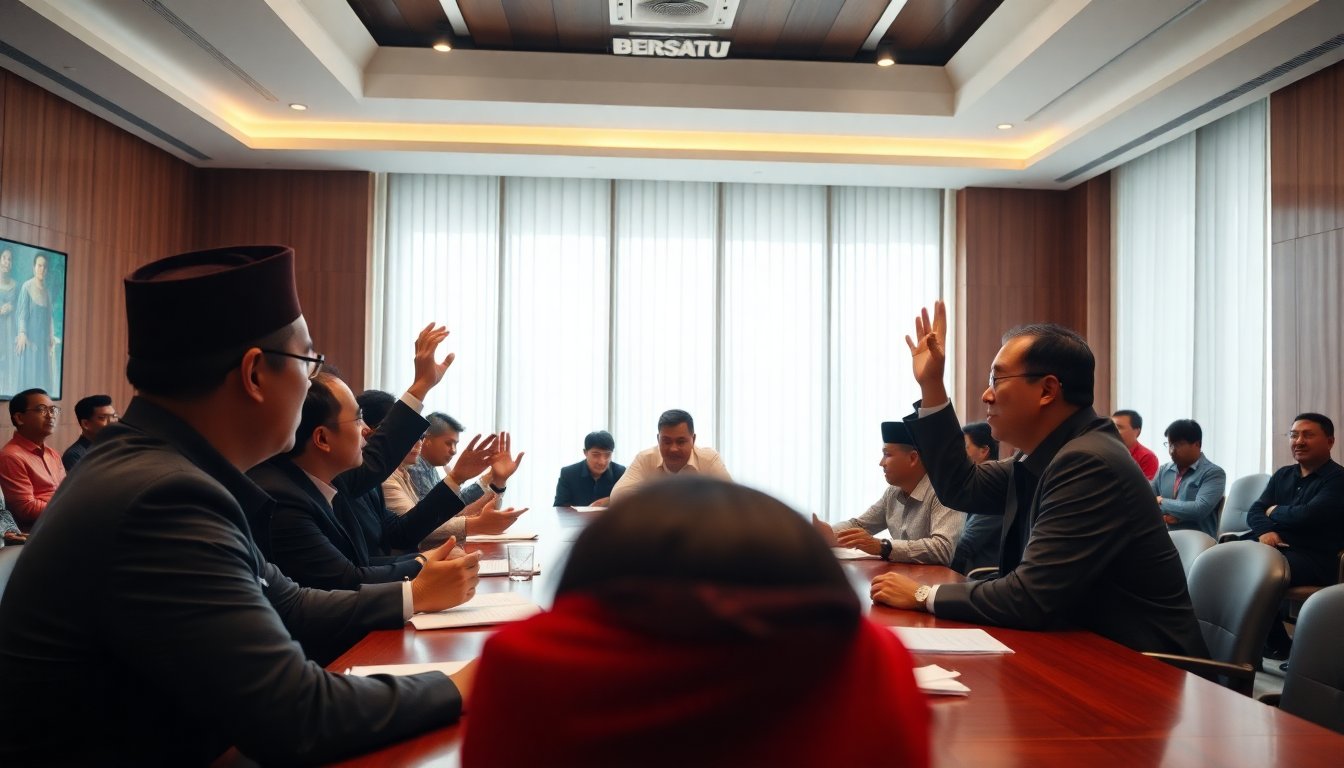Table of Contents
As Malaysia’s political landscape prepares for significant changes, Bersatu is at a crossroads. With national elections anticipated in early 2028, party dynamics are shifting, leading to heightened tensions over the selection of a prime ministerial candidate.
At a recent gathering, party officials expressed their support for Muhyiddin, a seasoned politician at 78 years old, to lead the charge in the upcoming polls. This endorsement, however, has sparked controversy.
Internal conflicts within Bersatu
Recent events have unveiled a rift within the party, driven by claims that a faction has been actively collecting signatures from numerous division leaders. Allegedly, this group of 120 leaders is advocating for a leadership change, urging Muhyiddin to step aside in favor of his deputy, Hamzah Zainuddin. This internal dispute highlights a lack of consensus on the party’s direction as it prepares for elections that will heavily rely on the support of the Malay-Muslim majority.
The significance of the Malay-Muslim vote
Approximately 60 percent of Malaysia’s 34 million population identifies as Malay-Muslim, making their votes crucial for any party seeking government power. The upcoming elections will serve as a litmus test for Bersatu’s popularity within this demographic, emphasizing the need for strong leadership and unity within the party.
Disciplinary actions within the party
In response to the emerging factions within its ranks, Bersatu’s disciplinary board has taken decisive action against several party members. Wan Saiful Wan Jan, the Member of Parliament for Tasek Gelugor, along with four other division leaders, faced expulsion due to alleged violations of party ethics. While the specific allegations remain unclear, this move appears to be a strategy to consolidate power and discourage dissent.
Additionally, another party member, Wan Ahmad Fayhsal Wan Ahmad Kamal, the MP for Machang, has received a one-year suspension, signaling that the party leadership is serious about maintaining control and discipline amid rising tensions.
The road ahead for Bersatu
As Bersatu navigates through these turbulent waters, the question remains whether the party can unify its factions and present a cohesive front before the elections. The leadership struggles and internal conflicts may not only affect the party’s electoral prospects but also its long-term viability in Malaysia’s dynamic political landscape.
The upcoming elections will be a pivotal moment for Bersatu, as it must reconcile internal divisions and secure the trust of the Malay-Muslim majority. The outcome will likely determine the party’s future direction and influence within the national political arena.


